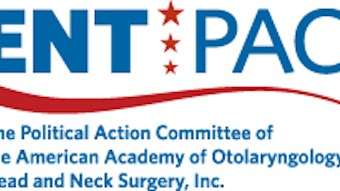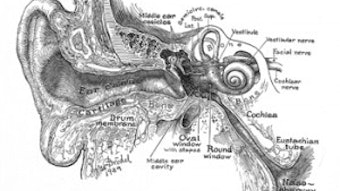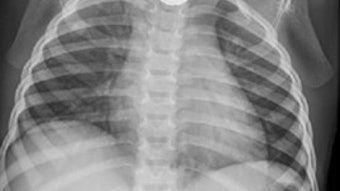AMA Adopts Principles on Employed Physicians
Liana Puscas, MD Chair, AAO-HNS Delegation to the AMA The American Medical Association (AMA) House of Delegates conducted its 2012 Interim Meeting November 10-13.* One issue of importance to otolaryngologist-head and neck surgeons that was discussed was the adoption by the House of Delegates of general principles regarding employed physicians. Given the increasing numbers of otolaryngologists, these principles could help provide direction in the drafting of contracts. The following is a summary of the principles. A more detailed version of the principles can be found on the AMA website at www.ama-assn.org. Principles for Employed Physicians Conflicts of Interest (a) Physicians should strive to recognize and address a conflict of interest that may exist between a physician’s duties to his/her patients and to his/her employer. (b) Employed physicians should be free to exercise their personal and professional judgment in voting and advocating on any matter regarding patient care interests, the profession, and healthcare without being retaliated against by their employers or being regarded in breach of their employment contracts. (c) In any situation where the economic or other interests of the employer are in conflict with patient welfare, patient welfare must take priority. (d) Physicians should always make treatment and referral decisions based on the best interests of their patients. (e) Assuming a title or administrative position that may remove a physician from direct patient-physician relationships does not override professional ethical obligations. Advocacy for Patients and the Profession (a) Patient advocacy is a fundamental element of the patient-physician relationship that should not be altered by the healthcare system or setting in which physicians practice, or the methods by which they are compensated. (b) Employed physicians should be free to engage in volunteer work outside of, and which does not interfere with, their duties as employees. Contracting (a) Physicians should be free to enter into mutually satisfactory contractual arrangements, including employment, with any healthcare entity as permitted by law and in accordance with the ethical principles of the medical profession. (b) Physicians should never be coerced into employment with any healthcare entity and employment agreements between physicians and their employers should be negotiated in good faith. (c) The employer should make clear to the physician the factors upon which compensation is based. (d) Termination of an employment or contractual relationship between a physician and an entity employing the physician does not necessarily end the patient-physician relationship between the employed physician and persons under his or her care. Patients should be given the choice to continue to be seen by the physician in his or her new practice setting or to be treated by another physician still working with the employer. (e) Physician employment agreements should contain provisions to protect a physician’s right to due process before termination for cause and should specify if termination of employment is grounds for automatic termination of hospital medical staff membership or clinical privileges. (f) Physicians are discouraged from entering into agreements that restrict the physician’s right to practice medicine for a specified period of time or in a specified area upon termination of employment. (g) Physician employment agreements should contain dispute resolution provisions. Hospital Medical Staff Relations (a) Employed physicians should be members of the organized medical staffs of the hospitals or health systems with which they have contractual or financial arrangements. (b) Regardless of the employment status of its individual members, the organized medical staff remains responsible for the provision of quality care and must work collectively to improve patient care and outcomes. (c) Employed physicians who are members of the organized medical staff should be free to exercise their personal and professional judgment in voting and advocating on any matter regarding medical staff matters without being deemed in breach of their employment agreements, nor be retaliated against by their employers. (d) Employers should seek the input of the medical staff prior to the initiation, renewal, or termination of exclusive employment contracts. Peer Review and Performance Evaluations (a) All physicians should promote and be subject to an effective program of peer review. (b) Peer review should follow established procedures that are identical for all physicians practicing within a given healthcare organization, regardless of their employment status. (c) Peer review of employed physicians should be conducted independently of and without interference from any human resources activities of the employer. Physicians—not lay administrators—should be ultimately responsible for all peer review of medical services provided by employed physicians. (d) Employed physicians should be accorded due process protections, including a fair and objective hearing, in all peer review proceedings. (e) Employers should provide employed physicians with regular performance evaluations, which should be presented in writing and accompanied by an oral discussion with the employed physician. (f) Unless specified otherwise in the employment agreement, termination of employment should not automatically result in loss of medical staff membership or clinical privileges unless an independent action of the medical staff calls for such action, and the physician has been afforded full due process under the medical staff bylaws. Payment Agreements (a) Although they typically assign their billing privileges to their employers, employed physicians or their chosen representatives should be prospectively involved if the employer negotiates agreements for them for professional fees, capitation or global billing, or shared savings. Also, there should be transparency regarding the actual payment amount allocated to the professional fee component of the total payment received by the contractual arrangement. (b) Employed physicians have a responsibility to assure that bills issued for services they provide are accurate, and should therefore retain the right to review billing claims as may be necessary to verify that such bills are correct. Employers should indemnify and defend employed physicians with respect to any violation of law or regulation or breach of contract in connection with the employer’s billing for physician services if the violation is not the fault of the employee. * Attendees of the meeting included the AAO-HNS Delegation to the House of Delegates: Liana Puscas, MD, delegation chair, and delegates Michael S. Goldrich, MD, Shannon P. Pryor, MD, and Robert Puchalski, MD. Alternate delegates, Alpen A. Patel, MD, and David R. Nielsen, MD, AAO-HNS EVP/CEO, were also in attendance. Joy Trimmer, JD, senior director for AAO-HNS Government Affairs provided staff support. For more information, please contact govtaffairs@entnet.org.
Liana Puscas, MD
Chair, AAO-HNS Delegation to the AMA
The American Medical Association (AMA) House of Delegates conducted its 2012 Interim Meeting November 10-13.* One issue of importance to otolaryngologist-head and neck surgeons that was discussed was the adoption by the House of Delegates of general principles regarding employed physicians. Given the increasing numbers of otolaryngologists, these principles could help provide direction in the drafting of contracts. The following is a summary of the principles. A more detailed version of the principles can be found on the AMA website at www.ama-assn.org.
Principles for Employed Physicians
Conflicts of Interest
(a) Physicians should strive to recognize and address a conflict of interest that may exist between a physician’s duties to his/her patients and to his/her employer.
(b) Employed physicians should be free to exercise their personal and professional judgment in voting and advocating on any matter regarding patient care interests, the profession, and healthcare without being retaliated against by their employers or being regarded in breach of their employment contracts.
(c) In any situation where the economic or other interests of the employer are in conflict with patient welfare, patient welfare must take priority.
(d) Physicians should always make treatment and referral decisions based on the best interests of their patients.
(e) Assuming a title or administrative position that may remove a physician from direct patient-physician relationships does not override professional ethical obligations.
Advocacy for Patients and the Profession
(a) Patient advocacy is a fundamental element of the patient-physician relationship that should not be altered by the healthcare system or setting in which physicians practice, or the methods by which they are compensated.
(b) Employed physicians should be free to engage in volunteer work outside of, and which does not interfere with, their duties as employees.
Contracting
(a) Physicians should be free to enter into mutually satisfactory contractual arrangements, including employment, with any healthcare entity as permitted by law and in accordance with the ethical principles of the medical profession.
(b) Physicians should never be coerced into employment with any healthcare entity and employment agreements between physicians and their employers should be negotiated in good faith.
(c) The employer should make clear to the physician the factors upon which compensation is based.
(d) Termination of an employment or contractual relationship between a physician and an entity employing the physician does not necessarily end the patient-physician relationship between the employed physician and persons under his or her care. Patients should be given the choice to continue to be seen by the physician in his or her new practice setting or to be treated by another physician still working with the employer.
(e) Physician employment agreements should contain provisions to protect a physician’s right to due process before termination for cause and should specify if termination of employment is grounds for automatic termination of hospital medical staff membership or clinical privileges.
(f) Physicians are discouraged from entering into agreements that restrict the physician’s right to practice medicine for a specified period of time or in a specified area upon termination of employment.
(g) Physician employment agreements should contain dispute resolution provisions.
Hospital Medical Staff Relations
(a) Employed physicians should be members of the organized medical staffs of the hospitals or health systems with which they have contractual or financial arrangements.
(b) Regardless of the employment status of its individual members, the organized medical staff remains responsible for the provision of quality care and must work collectively to improve patient care and outcomes.
(c) Employed physicians who are members of the organized medical staff should be free to exercise their personal and professional judgment in voting and advocating on any matter regarding medical staff matters without being deemed in breach of their employment agreements, nor be retaliated against by their employers.
(d) Employers should seek the input of the medical staff prior to the initiation, renewal, or termination of exclusive employment contracts.
Peer Review and Performance Evaluations
(a) All physicians should promote and be subject to an effective program of peer review.
(b) Peer review should follow established procedures that are identical for all physicians practicing within a given healthcare organization, regardless of their employment status.
(c) Peer review of employed physicians should be conducted independently of and without interference from any human resources activities of the employer. Physicians—not lay administrators—should be ultimately responsible for all peer review of medical services provided by employed physicians.
(d) Employed physicians should be accorded due process protections, including a fair and objective hearing, in all peer review proceedings.
(e) Employers should provide employed physicians with regular performance evaluations, which should be presented in writing and accompanied by an oral discussion with the employed physician.
(f) Unless specified otherwise in the employment agreement, termination of employment should not automatically result in loss of medical staff membership or clinical privileges unless an independent action of the medical staff calls for such action, and the physician has been afforded full due process under the medical staff bylaws.
Payment Agreements
(a) Although they typically assign their billing privileges to their employers, employed physicians or their chosen representatives should be prospectively involved if the employer negotiates agreements for them for professional fees, capitation or global billing, or shared savings. Also, there should be transparency regarding the actual payment amount allocated to the professional fee component of the total payment received by the contractual arrangement.
(b) Employed physicians have a responsibility to assure that bills issued for services they provide are accurate, and should therefore retain the right to review billing claims as may be necessary to verify that such bills are correct. Employers should indemnify and defend employed physicians with respect to any violation of law or regulation or breach of contract in connection with the employer’s billing for physician services if the violation is not the fault of the employee.
* Attendees of the meeting included the AAO-HNS Delegation to the House of Delegates: Liana Puscas, MD, delegation chair, and delegates Michael S. Goldrich, MD, Shannon P. Pryor, MD, and Robert Puchalski, MD. Alternate delegates, Alpen A. Patel, MD, and David R. Nielsen, MD, AAO-HNS EVP/CEO, were also in attendance. Joy Trimmer, JD, senior director for AAO-HNS Government Affairs provided staff support. For more information, please contact govtaffairs@entnet.org.













